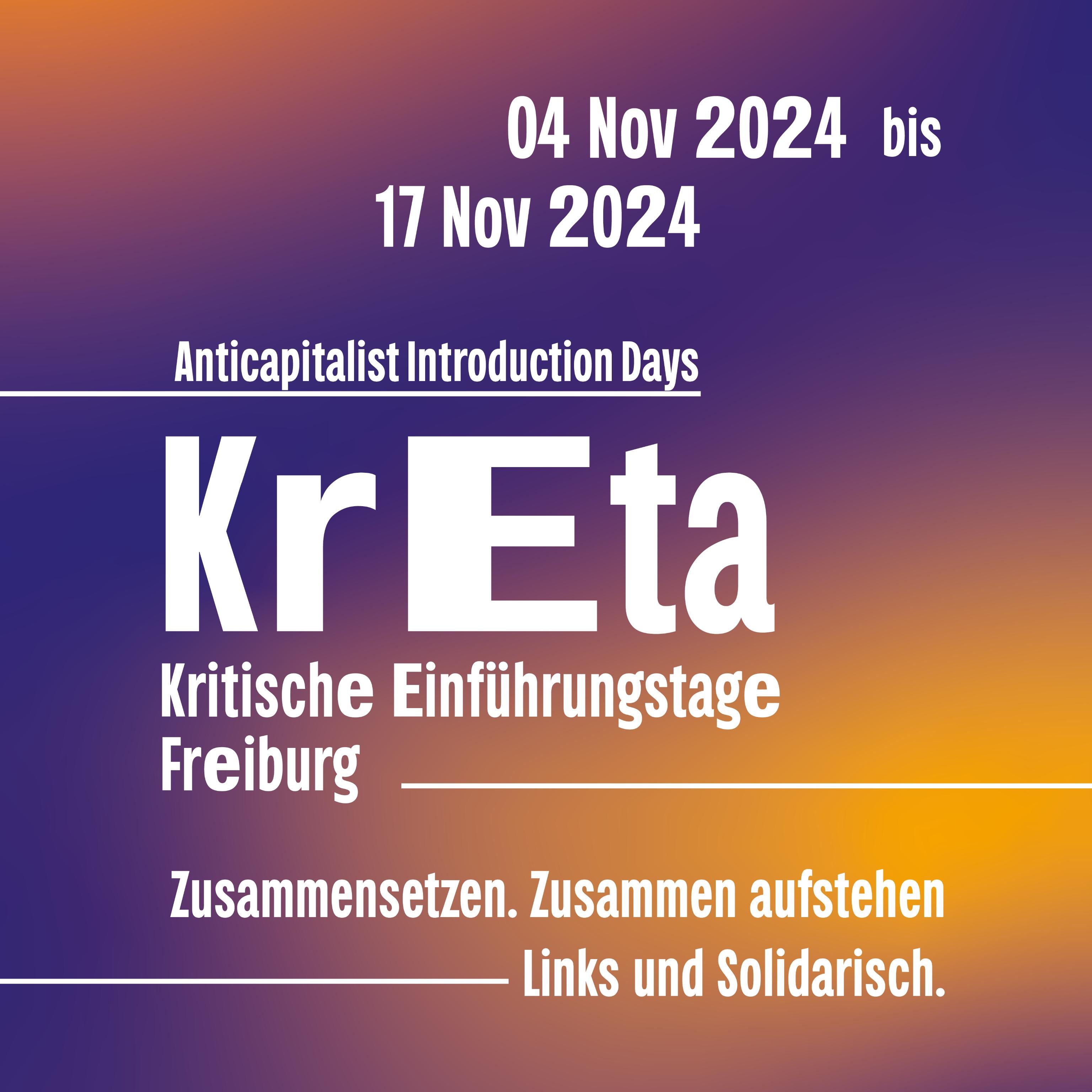Grundlagen der Kapitalismuskritik
So hätten sich utopische Science-Fiction-Fans vergangener Tage die Welt im 3. Jahrzehnt des neuen Jahrtausends vermutlich nicht vorgestellt: Trotz modernster Anbaumethoden verhungern auch im Jahr 2024 weltweit täglich tausende Menschen; in Deutschland sind allein 1,6-2 Millionen Menschen auf die Ausgabe abgelaufener Lebensmittel durch Tafeln angewiesen, Tendenz steigend.Vom Burnout bis zur kaputten Wirbelsäule – ernsthafte psychische und körperliche Erkrankungen sind auch in einer hoch-technisierten Arbeitswelt an der Tagesordnung – während in vielen Ländern der Dritten Welt öfters ganze Minen oder Fabrikhallen über den Köpfen der darin Arbeitenden zusammenkrachen. Künstliche Intelligenz und Robotik entwickeln sich vielleicht tatsächlich so kühn wie in den Zukunftsromanen und -filmen von früher; aber es erwartet eigentlich niemand, dass KI und Automaten, die den Menschen ja Arbeit abnehmen, die Arbeitszeit tatsächlich verkürzen oder angenehmer gestalten. Viel eher werden sie zu mehr Gehetze und Kontrolle auf der einen und zu mehr Arbeitslosigkeit auf der anderen Seite führen. Die Welt sieht also nicht unbedingt rosig aus... Zufall sind die beschriebenen Zustände nicht. Auch haben sie ihre Ursache nicht in der Gier Einzelner, nicht in verfehlter Politik und sie sind auch kein Naturschicksal: Armut und ein ruinöses Arbeitsleben haben System, sie sind notwendiges Resultat der kapitalistischen Produktionsweise. Der Vortrag möchte das begründen. Anhand einer Darstellung der zentralen Bausteine kapitalistischer Ökonomien – Privateigentum, Geld, Kapital und Lohnarbeit – soll eine Einführung in die Kapitalismuskritik in Anlehnung an Karl Marx gegeben werden.
📍 Vaubar (Merzhauser Str. 164, 79100)
💜 Infos zu Barrieren und Awareness findest du auf unserer Website: kretafreiburg.wordpress.com
***
Essentials of the critique of capitalism
This is probably not how utopian science fiction fans of days gone by would have imagined the world in the third decade of the new millennium: Despite state-of-the-art farming methods, thousands of people worldwide will still be starving to death every day in 2024; in Germany alone, 1.6-2 million people will be dependent on food banks to hand out expired food, and the trend is rising; from burnout to broken spines - serious mental and physical illnesses are also commonplace in a high-tech working world - while in many Third World countries, entire mines or factory buildings often collapse over the heads of the people working in them. Artificial intelligence and robotics may indeed be developing as boldly as in the future novels and films of yesteryear, but no one actually expects AI and robots, which take work off people's hands, to actually shorten working hours or make them more pleasant. Rather, they will lead to more hustle and control on the one hand and more unemployment on the other. So the world doesn't necessarily look rosy... The conditions described are not a coincidence. Nor are they caused by the greed of individuals or misguided policies, nor are they a natural fate: poverty and a ruinous working life are systematic; they are a necessary result of the capitalist mode of production. The lecture aims to substantiate this. Based on a presentation of the central building blocks of capitalist economies - private property, money, capital and wage labour - an introduction to the critique of capitalism based on Karl Marx will be given.
📍 Vaubar (Merzhauser Str. 164, 79100)
💜 Information on accessibility and awareness are available on our website: kretafreiburg.wordpress.com
